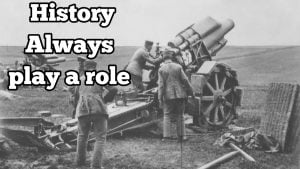Features of Yoruba Pre colonial Administration: Before the coming of colonial masters the political entity known as Nigeria today was made up of three different set of people namely: the Igbos, Yorubas and Hausa. Each of these regions had their different political administration until the British introduced indirect rule and federalism so as to achieve their goal of exploiting Nigeria.
The Yoruba pre-colonial administration was one of the most significant because it was both monarchical and democratic in Nature. Nonetheless, there are other important features of the Yoruba pre-colonial administration that are worthwhile to note and I am going to discuss all of them in this article. I therefore enjoin you to read this work carefully if you really want to know the features or characteristics of Yoruba pre-colonial administration.

Also see: Historical constitutional development of Nigeria
Pre-colonial Administration of the Yorubas
The pre-colonial system in Yoruba can be described to be democratic because of the inclusion of the principle of checks and balances that had been introduced in the system of administration. This approach to governance was prominent in the Oyo empire.
The Alafin as the political head of the empire was not an autocratic ruler. He was in fact, appointed by the Oyo Mesi (seven hereditary king makers of the Supreme). The Alafin was not alone at the executive level of governance, he was assisted by officials such as Osi Efa, Ona Efa and the Otu Efa
Following the Alafin was the Oyo Mesi (council of nobles) which controlled the excesses of the Alafin. The council was headed by the Basorun who was the Prime Minister in the hierarchy of administration. This council worked hand-in-hand with the Alafin but could still discipline him.
The Ogboni society also possessed judicial powers and was involved in the policy making. The society also maintained the cultural values of the people.
The army that was commanded by the Aare-Ona-Kakanfo was a very strong arm of the government. The commander however was subjected to the control of the Alafin. He was expected to win all wars and was not permitted to live in the city so as to prevent insurrection against the Alafin.
The entire system was planned in a way that no single authority had automatic powers to the disadvantages of the people.

Also see: Why indirect rule succeeded in Northern Nigeria
Features of the Yoruba Pre-colonial system of administration
1. It was monarchical in nature: The Oba was a Monarch and the position was hereditary. It was a constitution Monarch and as such, had limited powers.
2. It was democratic in nature: The people participated in government indirectly through the local chief and their representatives, the members of the Oyomesi.
3. There was the principle of checks and balances: The organs of government had powers to check one another to avoid abouse of powers. The Oyomesi checked the powers of the Oba, while the Ogboni society checked the powers of the Oyomesi.
4. Republican status: Each town had power to govern the themselves according to their customs and traditions, without external control.
5. Decentralization of Authority: Government authority was shared among the organs of government; as such there was no centralization of authority in any organ.
6. Separation of powers: The various organs of government have specified power and functions though, they played complementary roles.
Also see: Differences between Cross-offers and counter-offers
Hope this article was helpful? So far, i have briefly explained Yoruba pre-colonial administration and its features. No doubt, this article has down well to explain what you should know about the pre-colonial Yoruba society. Meanwhile, you can drop your questions and contributions in the comment section below if you have any.

Edeh Samuel Chukwuemeka, ACMC, is a lawyer and a certified mediator/conciliator in Nigeria. He is also a developer with knowledge in various programming languages. Samuel is determined to leverage his skills in technology, SEO, and legal practice to revolutionize the legal profession worldwide by creating web and mobile applications that simplify legal research. Sam is also passionate about educating and providing valuable information to people.
It’s understandable
Thanks helped me to read for my exam